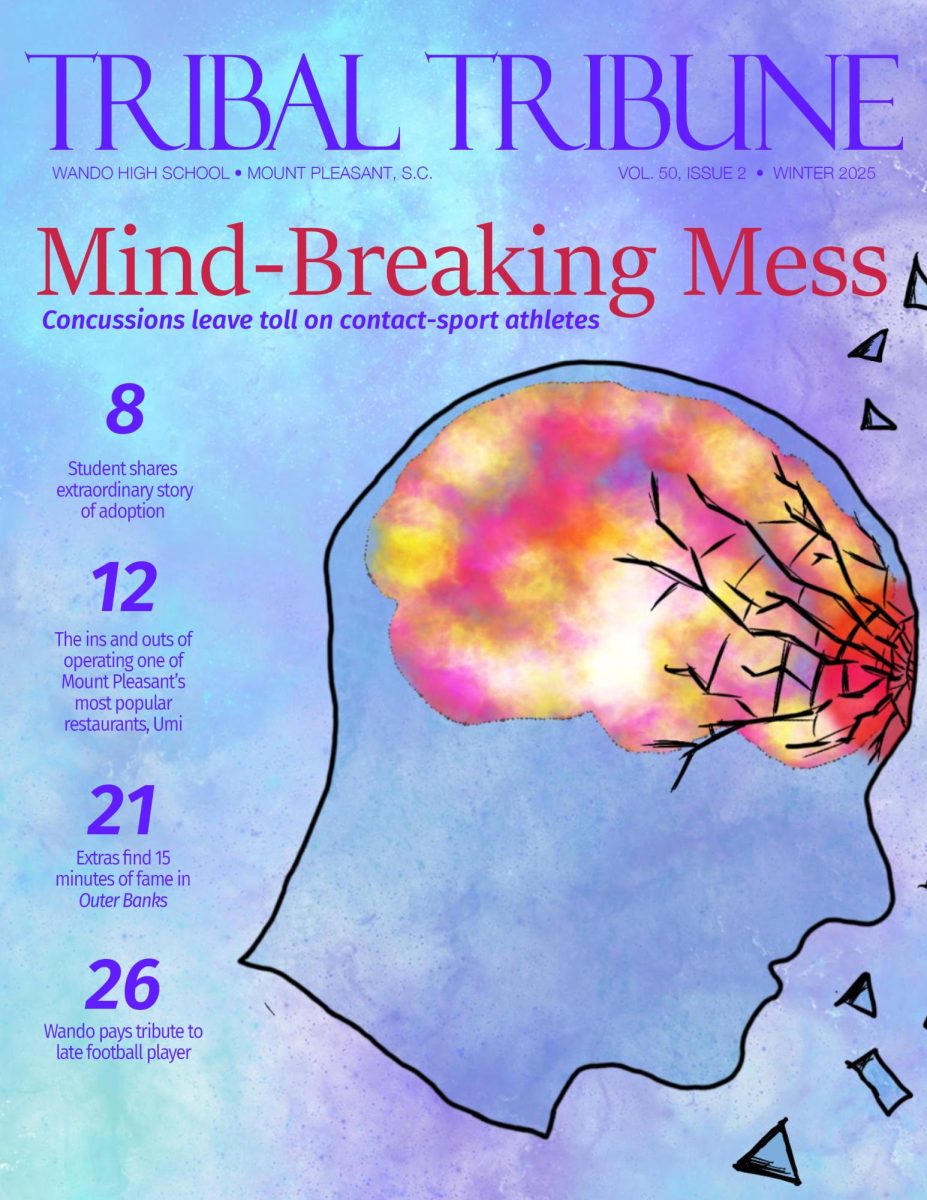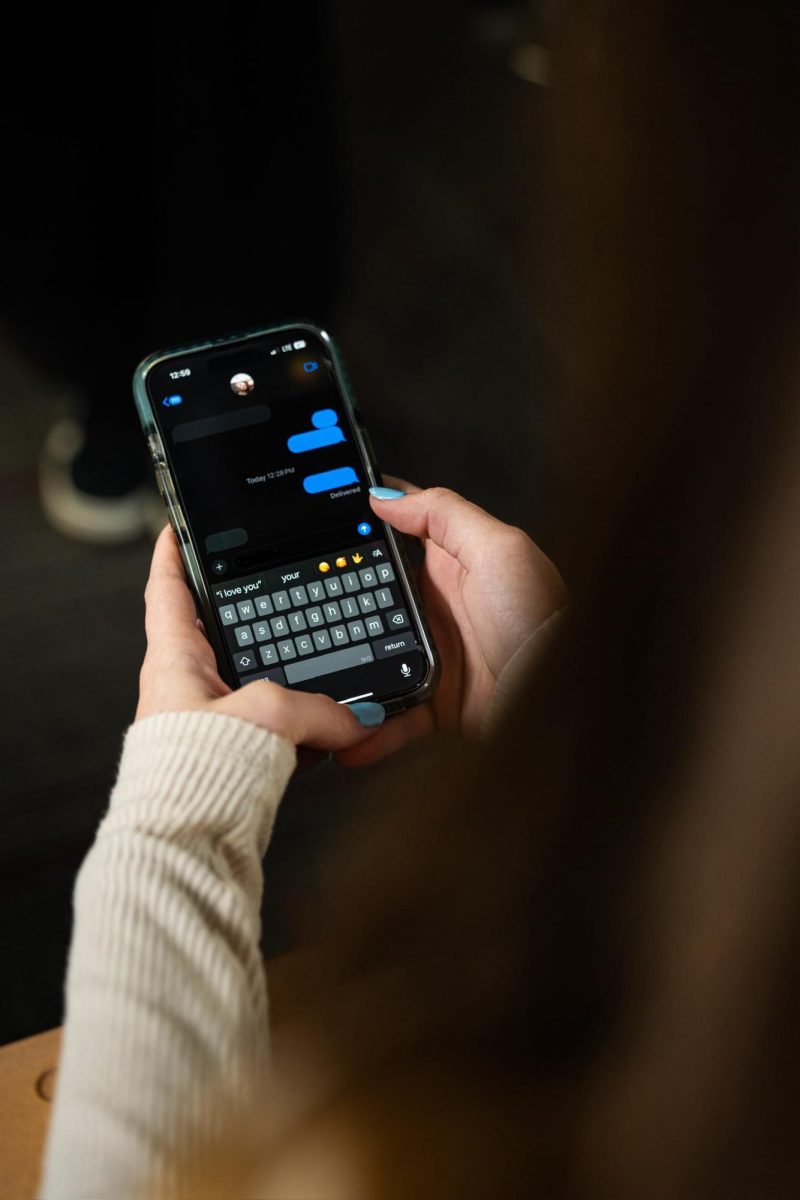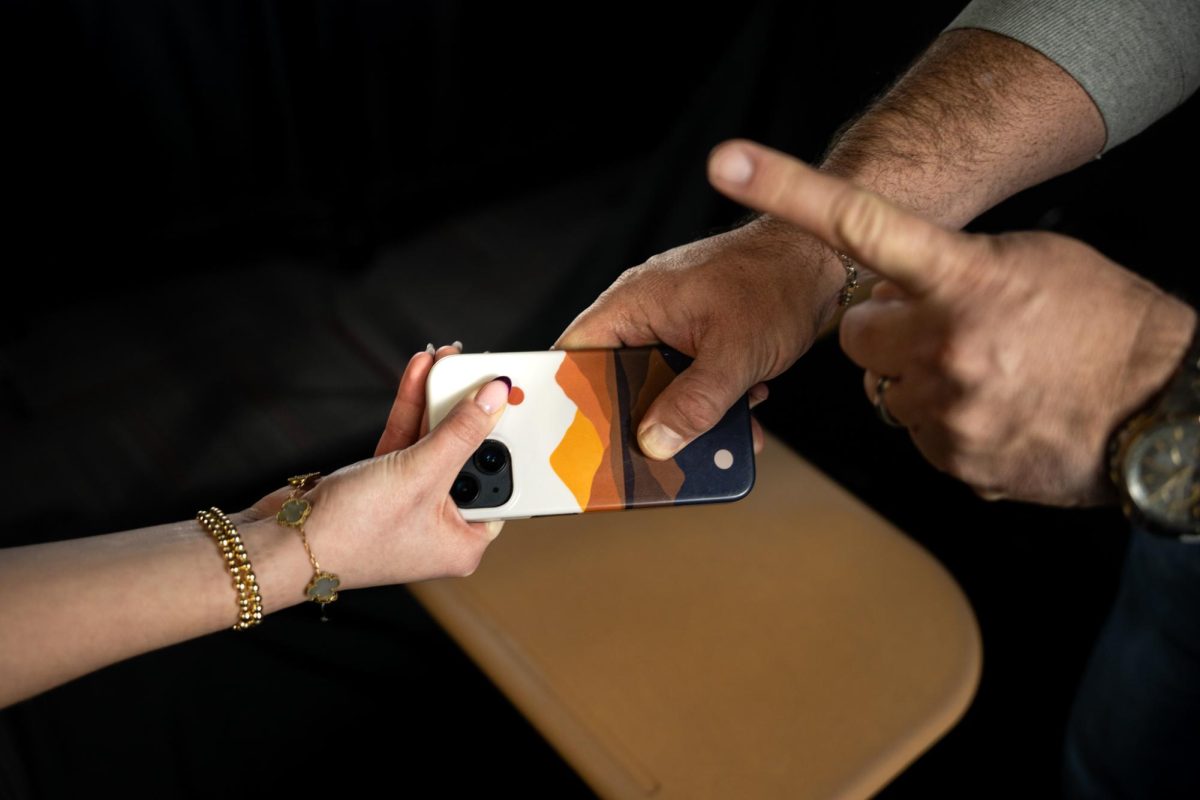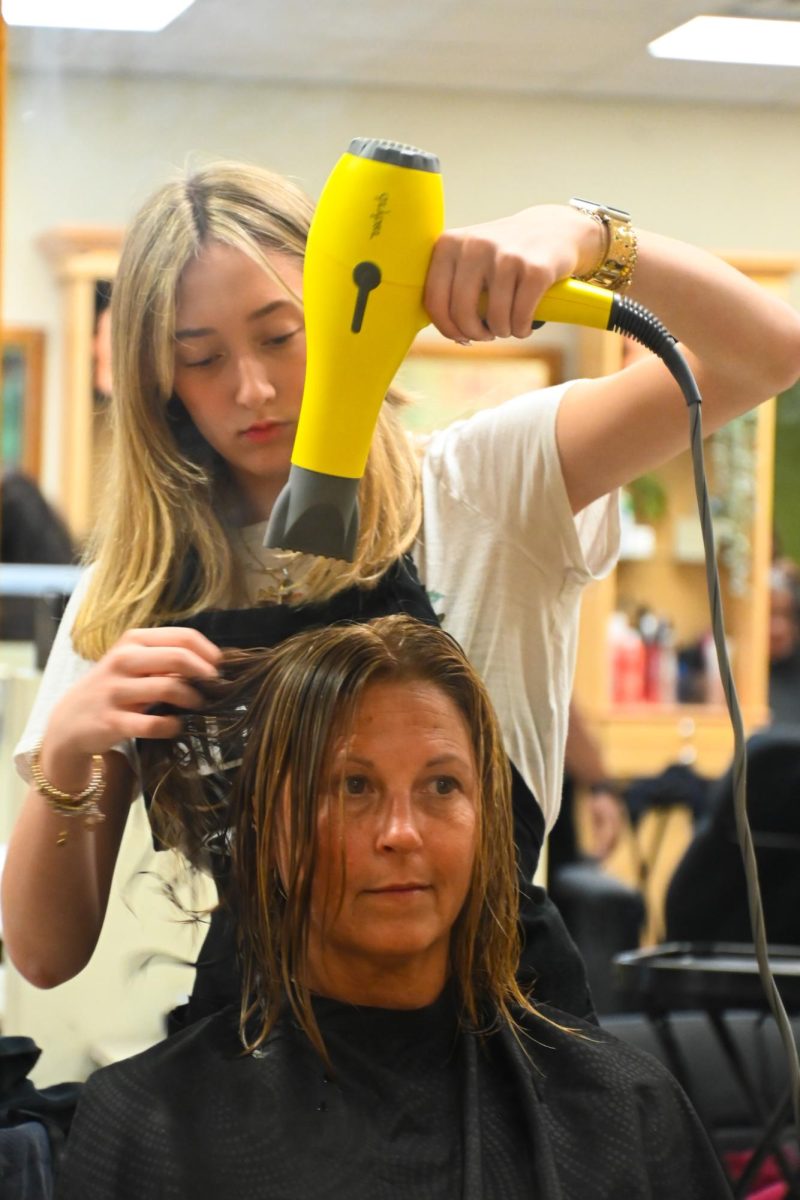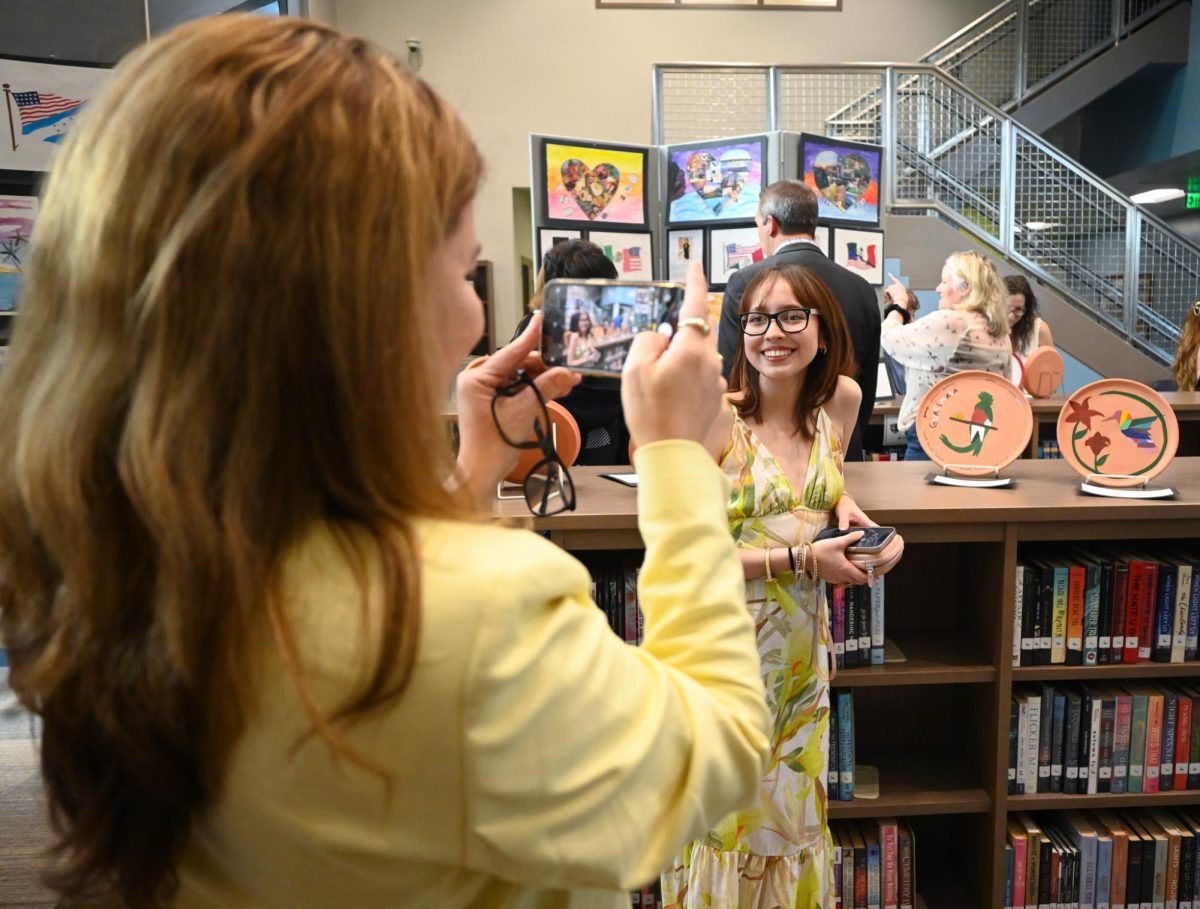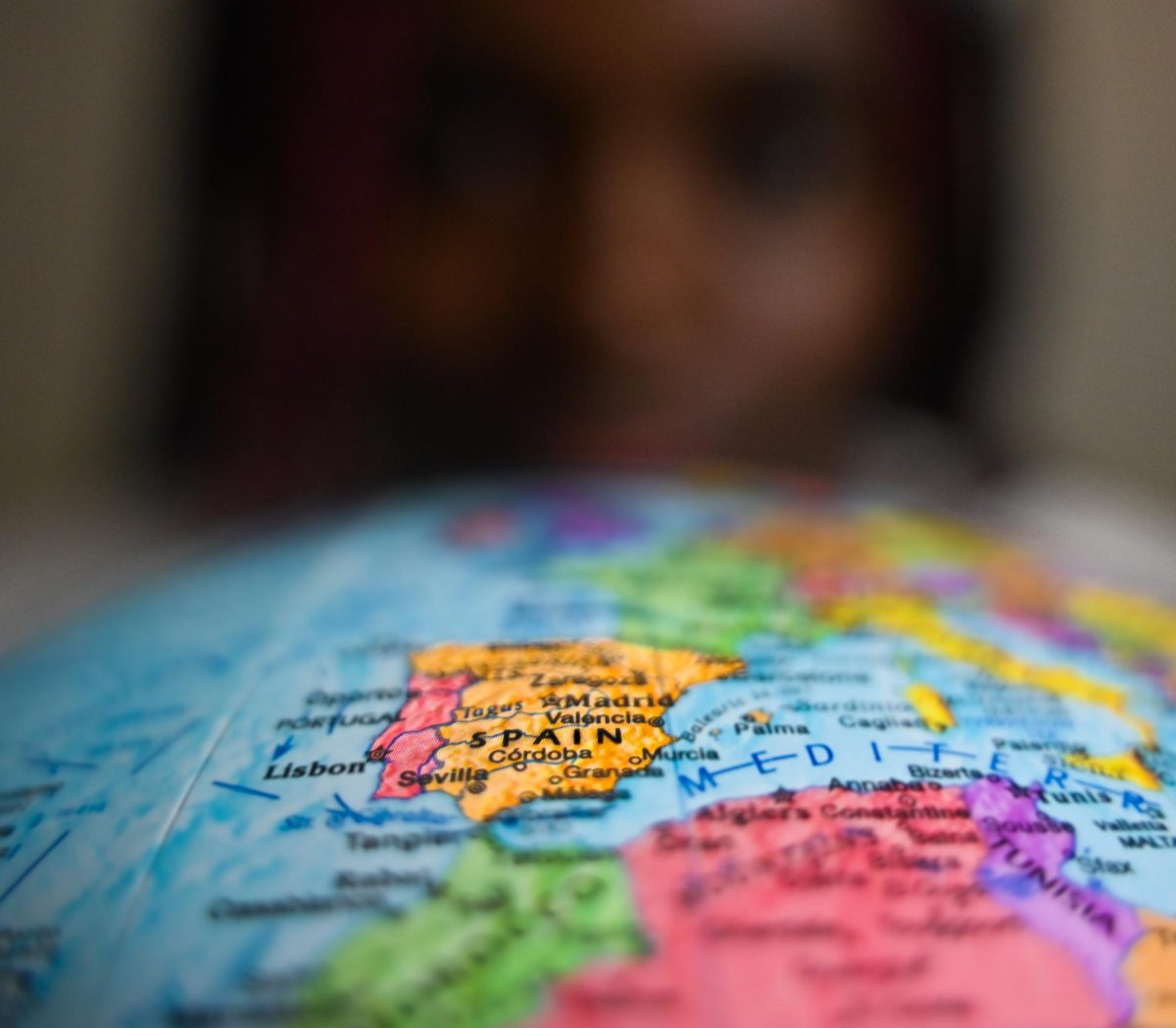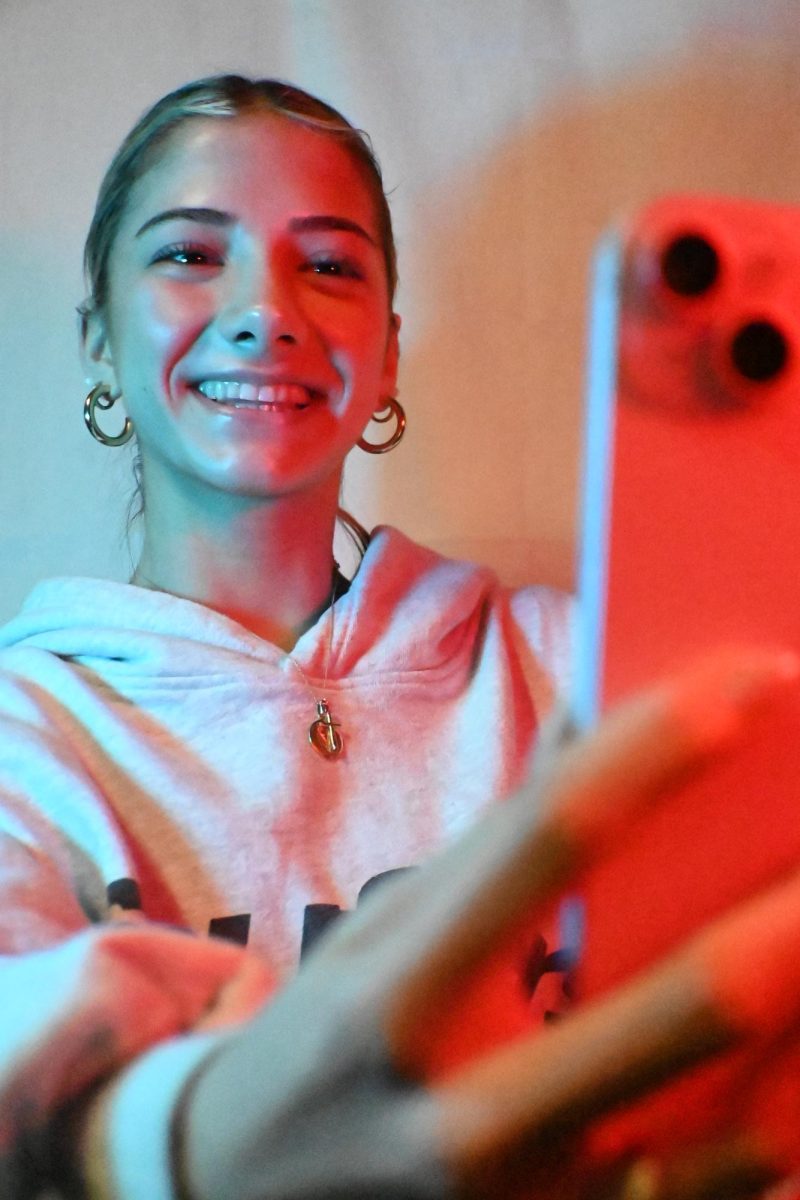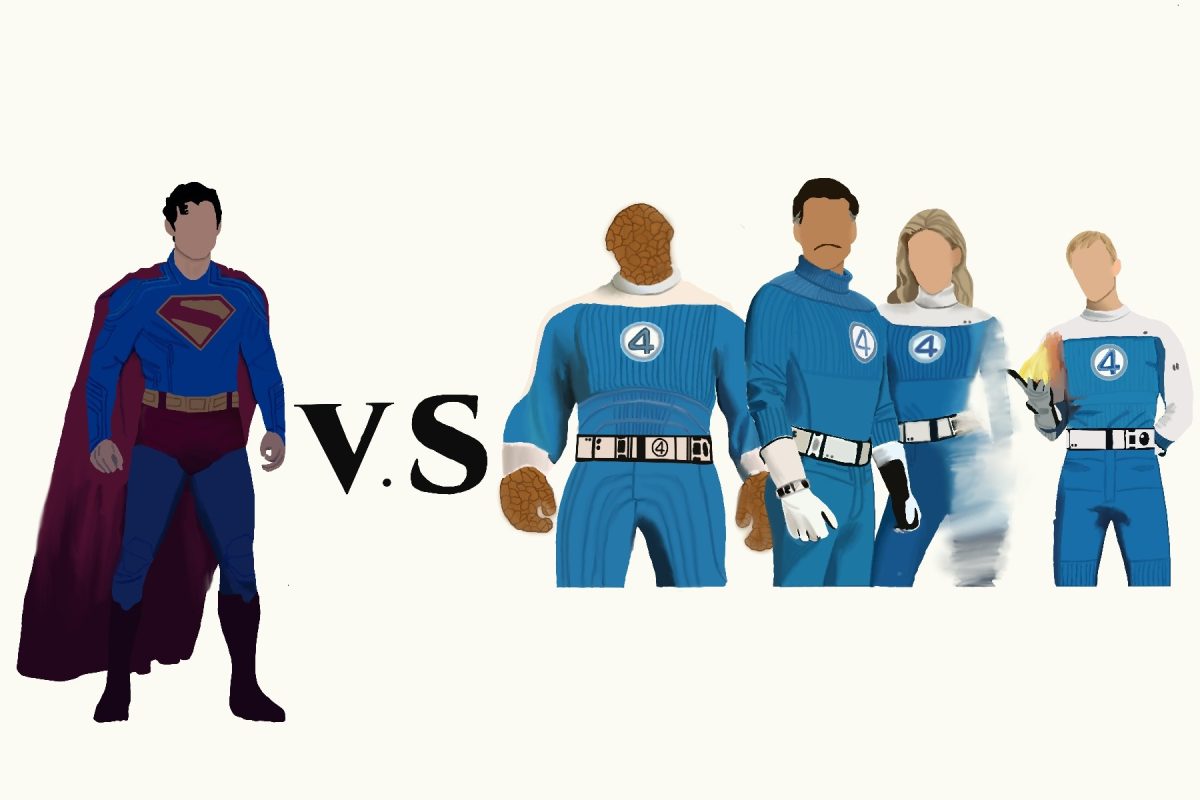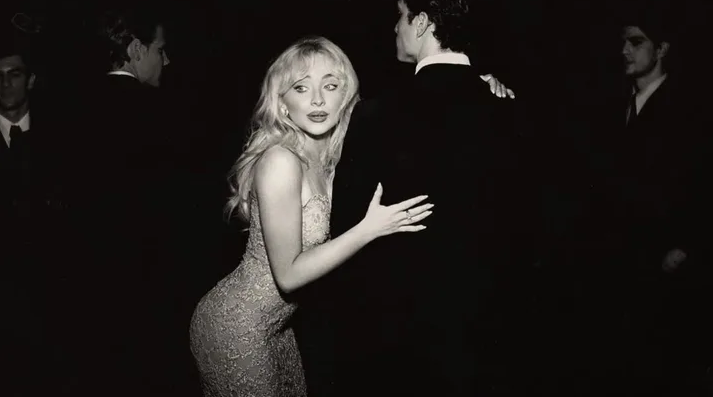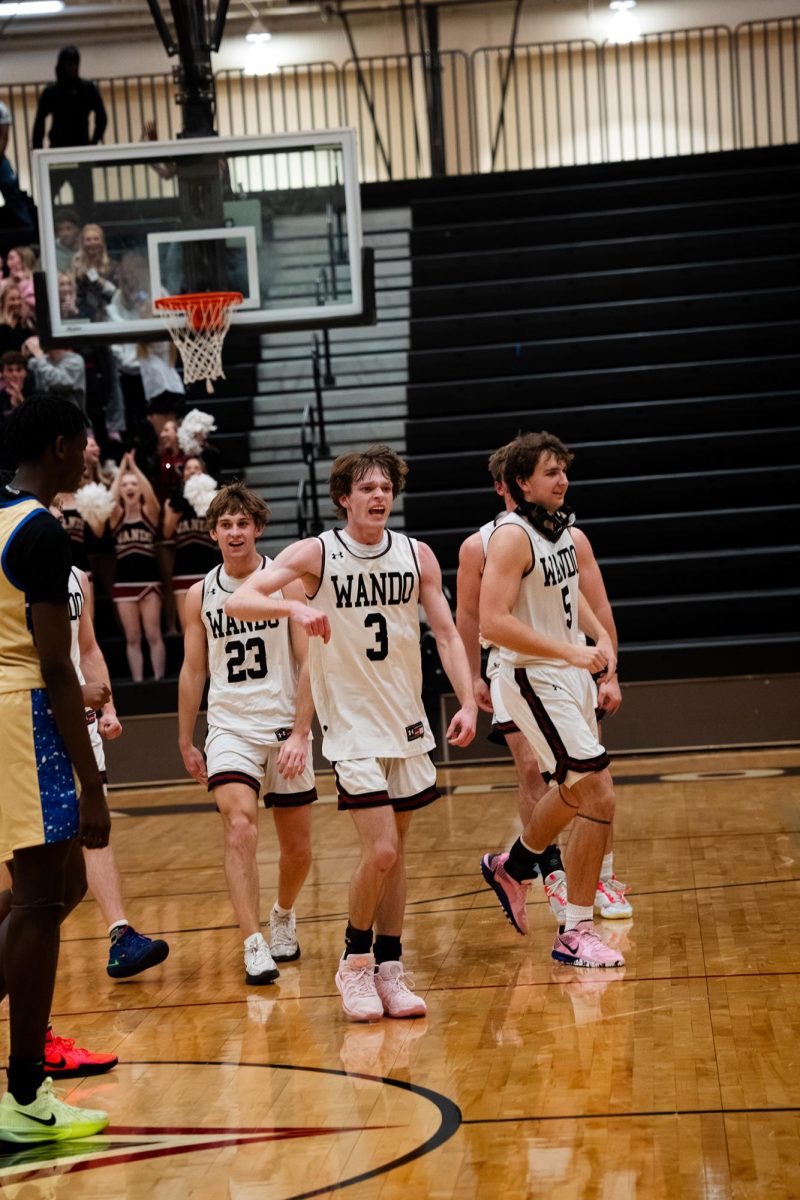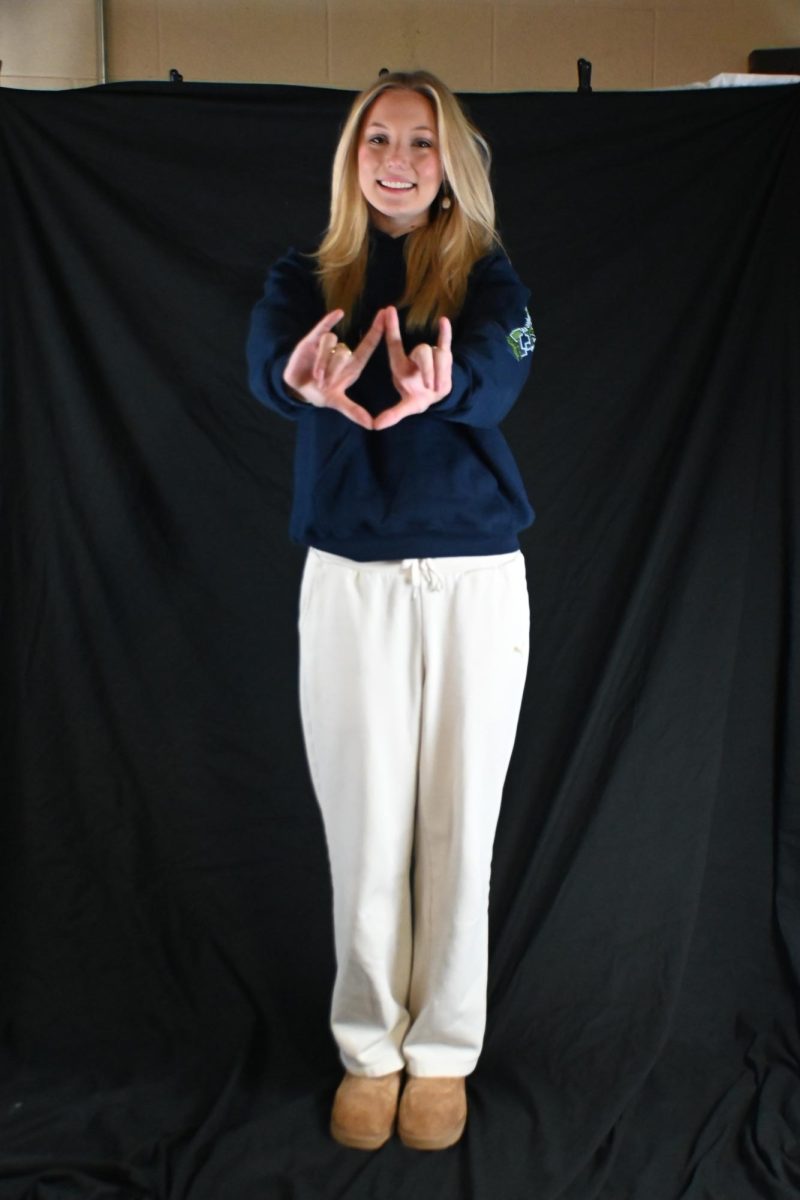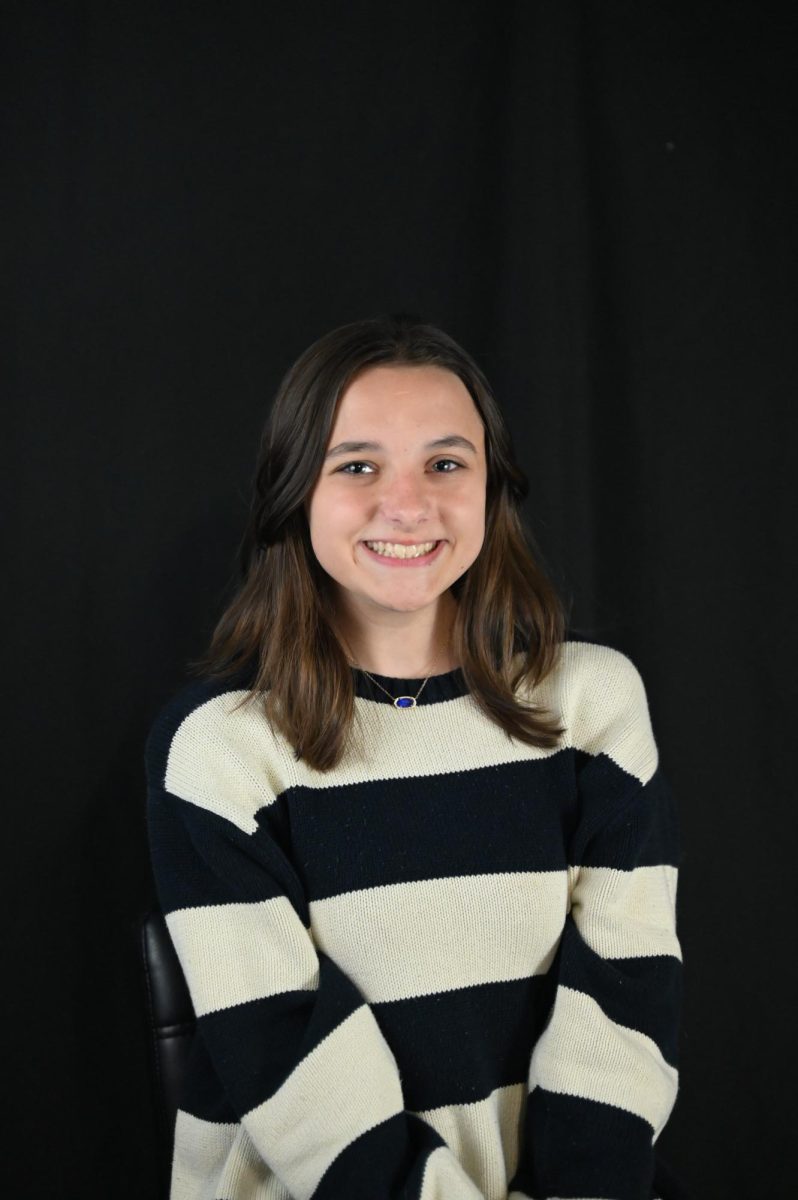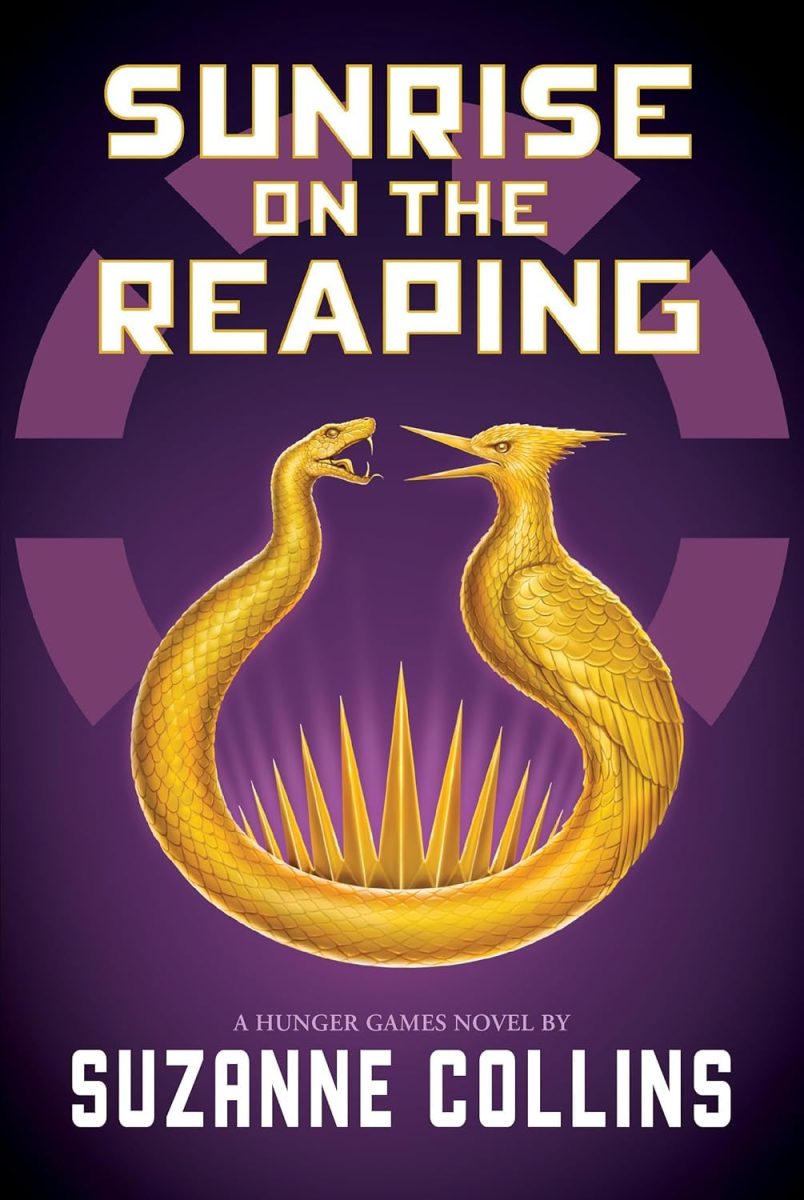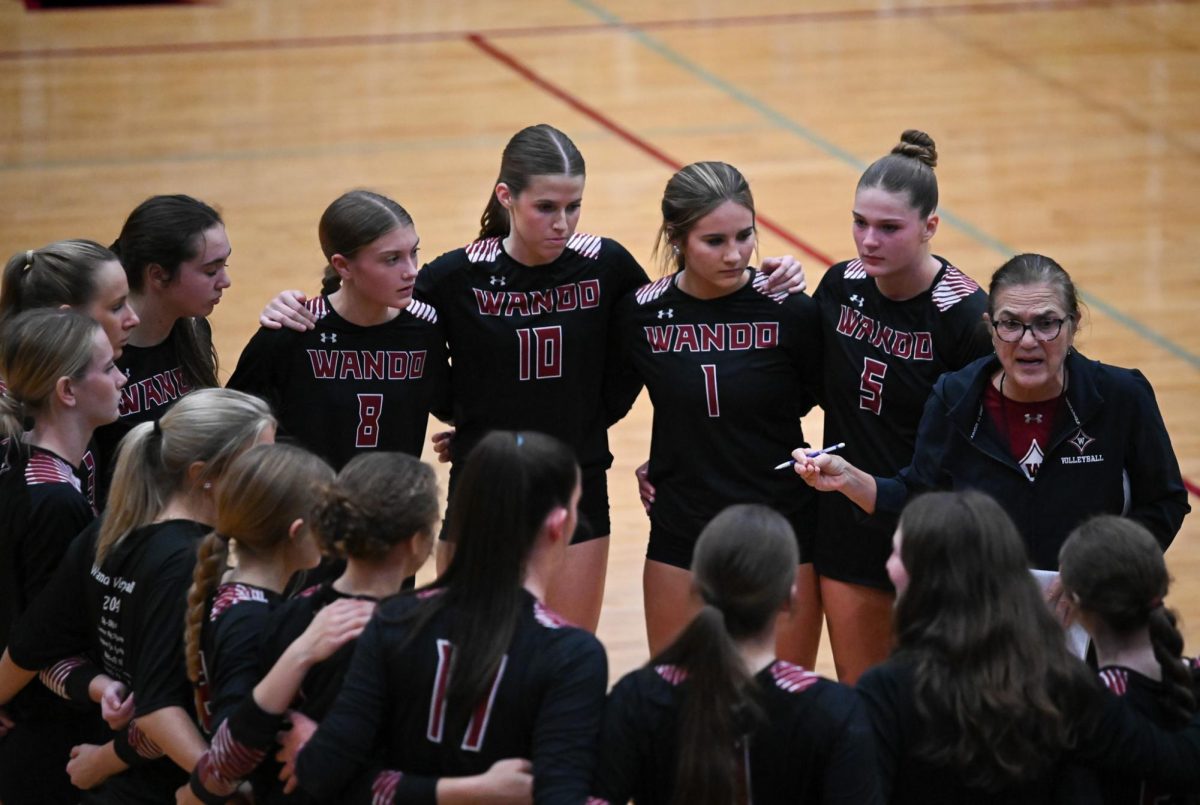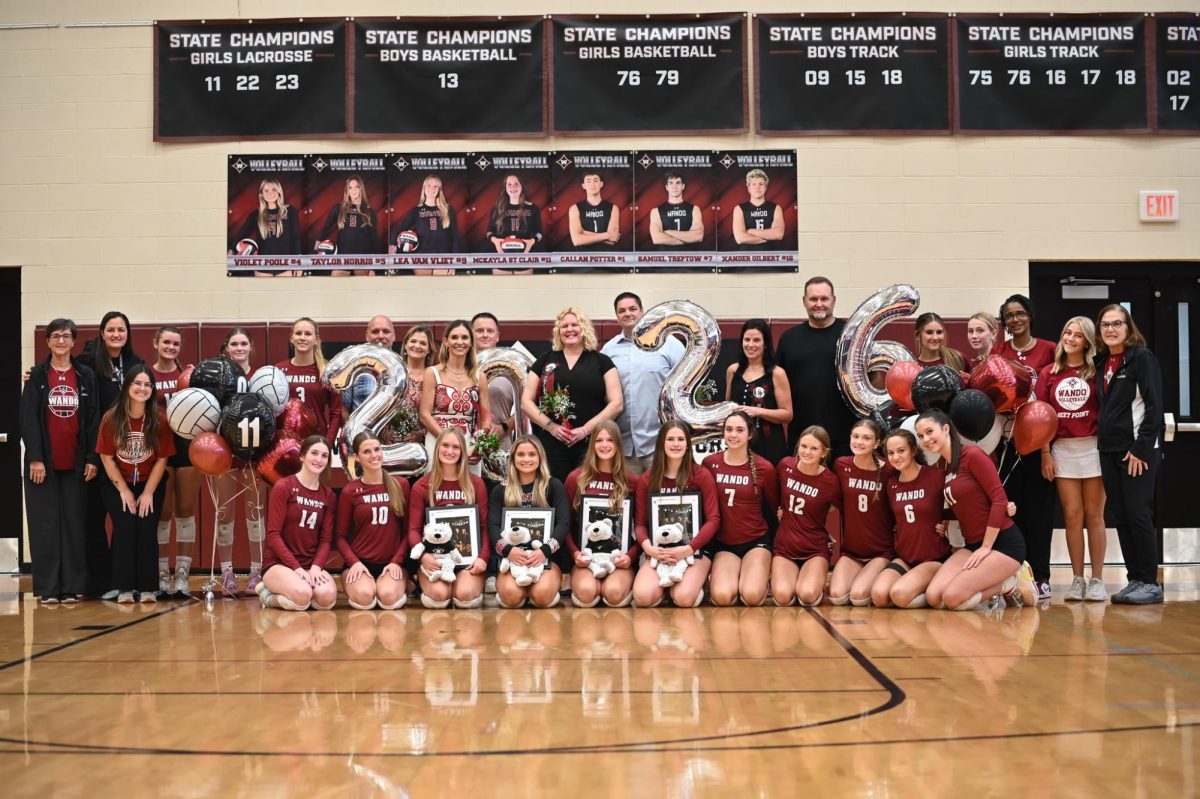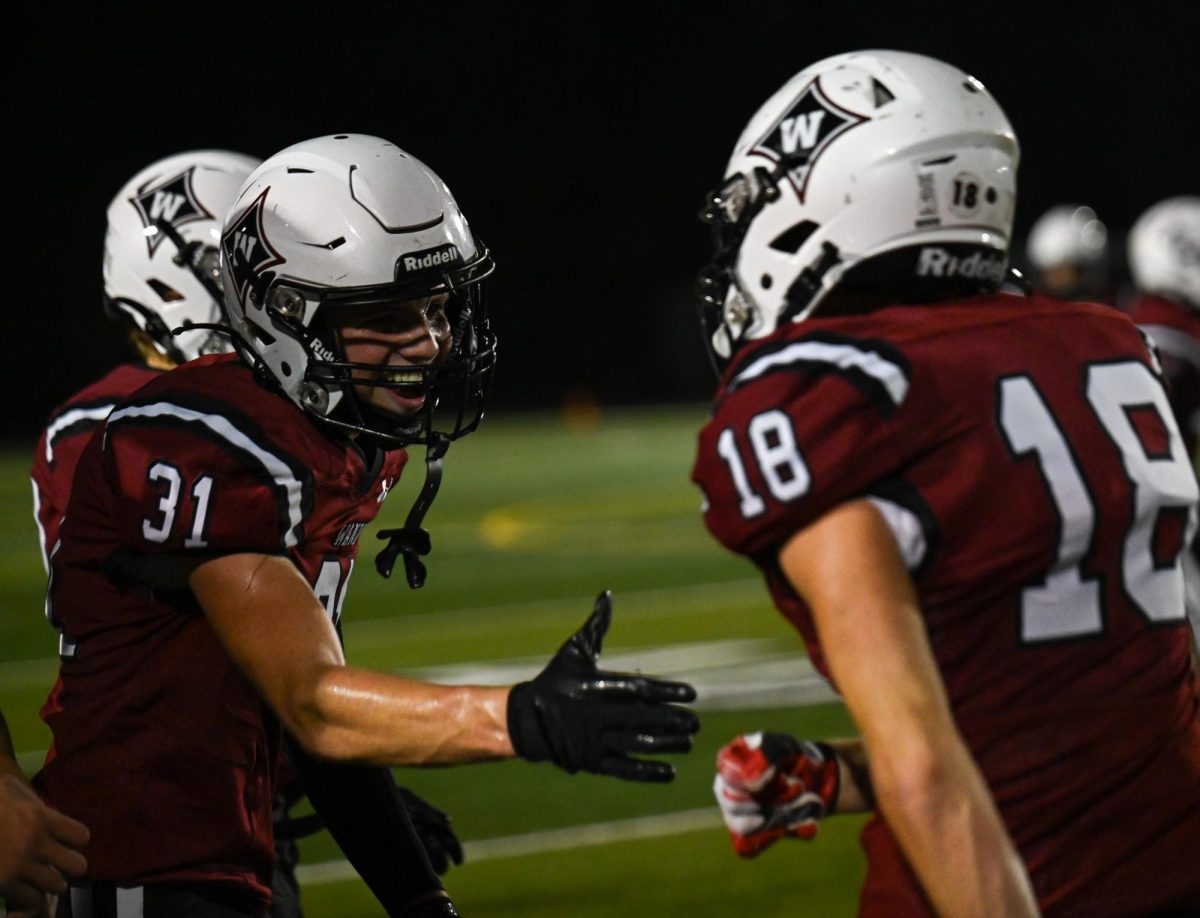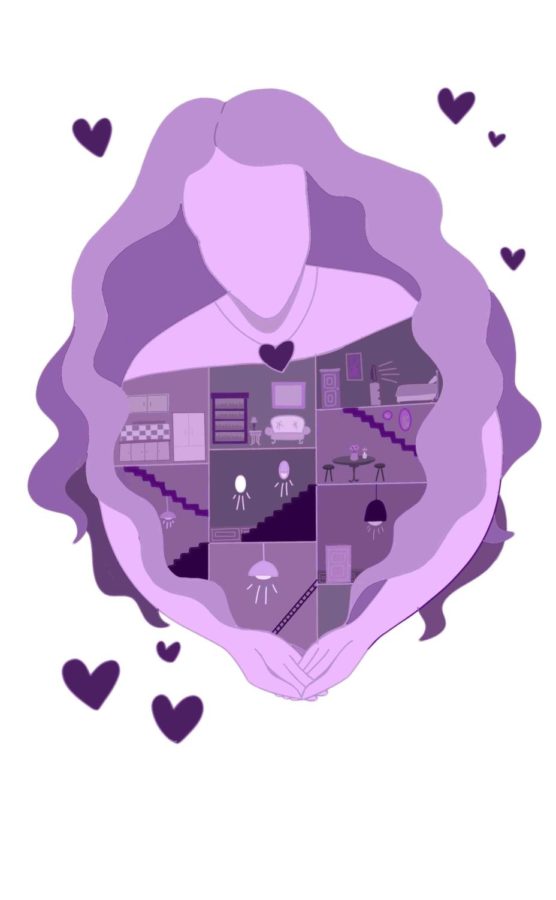Breaking out of the domestic abuse cycle
Senior Elizabeth loved her stepfather at first. She was only 4 when her mom married him, and as a child’s brain would, she loved him because she wanted a father, especially since her biological father was distant and lived out of state.
She didn’t realize the hours of screaming and throwing things weren’t out of love.
That the beating of her and her siblings wasn’t out of love.
“He was nice in the beginning, I remember being down here and he’d go and drop my siblings off at school and we’d go get breakfast. He had a dog, his dog’s name was Buck, and I liked the dog a lot,” Elizabeth said.
After living with him for years, Elizabeth became more conscious of his character as his facade slowly faded.
“He was just a very angry person and he was very emotionally abusive. He would say nasty things to us all the time. As I got older, it just got worse,” Elizabeth said. “He let his guard down and he would always say terrible things to my mom and he’d throw stuff a lot and then, I remember being really confused on whether or not, ‘ is that what was supposed to happen?’ ‘Is that how people were supposed to be?’”
Soon, the emotional abuse and anger morphed into something worse.
“He started beating us, my siblings and I. We would come down here to visit my dad and we were getting changed to go to the pool and he saw welts on me. And so he took my parents back to court and the court ordered that he wasn’t supposed to put his hands on us anymore, but obviously you can’t really stop that unless there’s a police officer in the house,” Elizabeth said.
The abuse took over all aspects of Elizabeth’s life, controlling how she interacted with others and what actions she took to protect herself.
“I worked a lot just to get out of the house, I never brought anybody over to my house ever. I never talked about it to anybody because I was embarrassed about it. The thing is just because somebody else’s actions affected me, I shouldn’t have been embarrassed,” Elizabeth said.
Elizabeth’s house burnt down in Dec. 2019. Her family moved in with her stepfather and his family. It was there she was finally free of him.
“I remember waking up and him and my mom were arguing and he packed his stuff and left. And then about a week later he came back and he told my mom that he was moving on with his life,” Elizabeth said.
Even though Elizabeth does not see nor interact with her stepfather today, his abuse has left a lingering effect on her life.
“I would say even to this day, I still suffer from issues and personally…Whenever there’s conflict or anything, I start to panic, I start to sweat. I feel like running and a lot of the time when there is conflict or I’m having a disagreement with somebody, like I shut down and zone out. It’s from years of sitting on the couch and just being yelled at for like two hours and being told I’m nothing,” Elizabeth said.
Elizabeth feels that if the abuse hadn’t been there for so long, she, and her siblings would be a little better today.
“If there would’ve been change sooner and my mom would’ve left earlier, I feel like by now I would’ve been a little bit over and more doing better,” Elizabeth said. “Not only has it affected me, but like seeing how it affected both of my siblings in different ways. Like my poor brother, he got the front of it and so like he’s still to this day trying to pull it together and figure it out. My sister, she got to leave a little earlier, so she’s like almost to that point where it doesn’t affect her as much.”
To Elizabeth, it does get better, and she offers advice to anyone going through a similar situation.
“It does get better. Things change, I remember being a kid, thinking there’s no way out of this, I’m gonna be here the rest of my life. .. There are resources and places you can go, tell people. Even if you don’t think they might be able to help, they might be able to and just have a shoulder to lean on, to tell what’s going on. It does help,” Elizabeth said.
My Sister’s House aims to be a place to support people like Elizabeth, a home for peoples whose own home has turned against them. They are an organization focused on helping and empowering women who are victims of domestic violence.
Natalie Hauff is Chairwoman of the Board of Directors at My Sister’s House. She first got involved with the topic of domestic abuse back in 2014, when she was one of the four journalists who wrote the “Til Death do us Part” series that highlighted domestic abuse in South Carolina.
“South Carolina in particular, [was] the number one state in the country of women killed by men ,and we did a multi part series. It got a lot of attention and also created a lead to the reform of many domestic violence laws,” Hauff said.
As a journalist, Hauff had to stay objective and unbiased on the topic. At My Sister’s House, she’s allowed to weigh in her personal experiences and feelings.
“In my new role, I’ve had opportunities to join boards and get more involved in the community. I had always wanted to do more with My Sister’s House, and helping, in particular with the domestic violence issue here in our area, I felt like the work wasn’t finished, years had gone by since the piece was published. People move on, and they move on to the next issue, and there’s still so much work that has to be done,” Hauff said.
Over the 40 years, the nonprofit My Sister’s House has evolved and changed. However, its goal has remained clear: to support survivors and victims of domestic violence and their families.
“[Helping] looks different than it did 10 years ago. The way that it used to run was that it was a very shelter first model. The emergency shelter was really the core of the service. Helping families and women immediately get out of the situation by placing them in a shelter, which we had for 40 years. So this past year, we sold the shelter, and we’d still provide emergency shelter, but we do it in a private model. If a person calls us and they say that they’re in a very dangerous, dangerous situation, and they need help staying somewhere, we still place them somewhere, it’s just not in one shelter. We did that for a lot of reasons,” Hauff said.
My Sister’s House isn’t just a shelter for those who need it to stay at, it is a support in all ways, including legally, mentally, and financially.
“We provide court advocacy, which means that we have someone who helps people guide but help guide them through the legal process, because there is a lot of law that can be confusing to people, … So the court advocate helps guide them through the process in being really a support system for them,” Hauff said.
“We also have clinical therapy. We have several clinical therapists on staff who help these survivors just get through the traumatic experience and, and rebuild their lives. And then of course, we provide financial assistance. It really depends on the person and what their needs are. But we take a really holistic and comprehensive approach to helping survivors and their families.”
Hauff finds that My Sister’s House helps fill the gaps that exist in the system as well as an escape for the victims; somewhere they can feel safe.
“Law enforcement, and the courts, they’re doing what they can, but there needs to be a support system for the victims and their families to get through this. It can be a very confusing process. It’s a very traumatic experience for the victims. My Sister’s House provides that hope for people that a different life exists, a life without abuse, a life where they can feel safe. the staff of My Sister’s House provide that opportunity by providing that safe space, providing that therapy to help them get through the mental challenges that exist around this traumatic experience, and the financial support that they need in being able to become independent,” Hauff said.
Each victim has a different story, a different process of healing. My Sister’s House helps each victim no matter how long it takes for them to heal.
“Some clients continue getting therapy for years and years, we don’t cut them off at any point. We have some people who enter and do therapy for a few months, and then leave, and then we never hear from them again .. .,” Hauff said “We do everything we can to make sure they understand that My Sister’s House is there for them, without judgment whenever they need us. We can be there for them from the beginning, to removing them from the situation, getting them back on their feet and becoming independent”.
My Sister’s House has been a rewarding experience for Hauff, as she loves hearing about how she’s helped people everyday.
“It provides people a true escape. Every day when I hear these stories, that is what drives me. We’re working hard to support the families and women every day, but also thinking on a larger scale of how we can really systematically change this problem,” Hauff said.
Even with the work done, Hauff finds there’s always more people she can help, always more people that need her help.
“We are still one of the top 10 states in the country, And while I’m grateful that we were able to make some strides following the articles, there’s still so much work to be done. A big part of my drive is knowing that there’s still so much to do. Now we’re really focusing a lot on education and prevention, working with teams and helping shape how people rethink relationships, so that there are fewer victims that we have to serve,”Hauff said.
Allison Humplik is the clinical social worker for Wando. While this is the first year Wando has had a clinical social worker,Humplik has been a clinical worker since 2003, motivated by her desire to help people and help change the cycle of what people had gone through.
“When children are exposed to prolonged domestic violence, their brain actually kind of rewires itself after trauma. The way that they perceive the world, the lens that they view, the world is a little bit different. They are prone to anxiety, depression, and falling into the same pattern. They think it’s okay that people put their hands on them,” Humplik said.
While domestic violence is part of their outside life, the issue can impact all parts of their life, especially school.
“Attention issues are the biggest thing in school. It’s hard to concentrate when you are worried about a loved one. So if you witnessed your mom or dad fighting that morning, and one of them got violent, and then you had to get on the bus and go to school. it’s hard to concentrate because you’re preoccupied with those thoughts,” Humplik said.
“Personal relations become harder for these victims, as with domestic violence, they are normally abused by someone they trust,” Humplik said.
Even with supports set up, Humplik doesn’t think they are not enough to truly quell the issue.
“I feel frustrated sometimes with the support that sometimes doesn’t exist in the community…But sometimes people feel like they have to be in that situation. They have to stay at home. So they keep their children in that home. it’s hard for me because I want to provide support for them, but I know that they’re still in that environment. I want to just make sure that they have a safety plan in place and because not everybody has a place to go. not everybody lives in an environment where they have extended family or friendships,” Humplik said.
Opposed to men, Humlik finds it’s harder for women to leave their abusive household and stand on their own feet. Especially when they act as caretakers for their home, or aren’t receiving as much pay as their male counterparts.
“My Sister’s House provides [women] a safe and stable environment where they can shower and they can get food on the table, and they can sleep safely away from their abuser until they get back on their feet. And then they can determine what the next steps are,” Humplik said
Humplik believes that no matter what the situation is, getting help is essential.
“I think counseling is a huge component to going through that trauma and reaching out and knowing who you have and what available resources you have. I think that’s big,” Humplik said.
still in that environment. I want to just make sure that they have a safety plan in place and because not everybody has a place to go. not everybody lives in an environment where they have extended family or friendships,” Humplik said.
Opposed to men, Humlik finds it’s harder for women to leave their abusive household and stand on their own feet. Especially when they act as caretakers for their home, or aren’t receiving as much pay as their male counterparts.
“My Sister’s House provides [women] a safe and stable environment where they can shower and they can get food on the table, and they can sleep safely away from their abuser until they get back on their feet. And then they can determine what the next steps are,” Humplik said
Humplik believes that no matter what the situation is, getting help is essential.
“I think counseling is a huge component to going through that trauma and reaching out and knowing who you have and what available resources you have. I think that’s big,” Humplik said.



